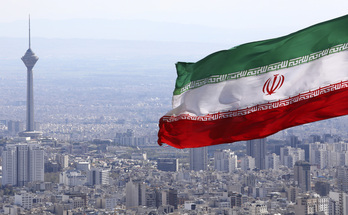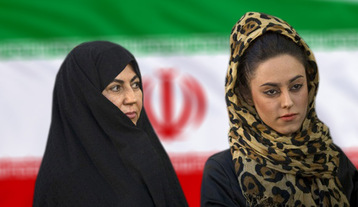-
China imposes sanctions on UK MPs, lawyers and academic in Xinjiang row

Former Conservative party leader Iain Duncan Smith says he will wear the retaliation like a ‘badge of honour’ Xinjiang row
China has imposed sanctions on 10 UK organisations and individuals, including the former leader of the Conservative party, Iain Duncan Smith, over what it called the spreading of “lies and disinformation” about human rights abuses in Xinjiang.
The sanctions are a response to the UK decision to take measures against four Chinese officials on Monday and follow the similar punishment by China against a group of MEPs, European academics and thinktanks.
The British politicians named have been at the forefront of the year-long campaign calling for sanctions against China over the alleged mass rounding up of Uighur Muslims in Xinjiang.
China has repeatedly claimed the camps are re-education centres targeted at terrorists, and the Chinese embassy in London will hold a further briefing on Friday to defend what is happening in the province. Xinjiang row
The British foreign secretary, Dominic Raab, responded to the expected Chinese countermeasures:“It speaks volumes that, while the UK joins the international community in sanctioning those responsible for human rights abuses, the Chinese government sanctions its critics.
“If Beijing wants to credibly rebut claims of human rights abuses in Xinjiang, it should allow the UN high commissioner for human rights full access to verify the truth.”
The sanctions are largely symbolic in that they ban the group from travelling to China, and freeze any assets they may have in China, but at issue is whether relations spiral downwards, or whether the dispute is partitioned from the wider relationship between the UK and China.
The Chinese have stopped short of targeting any minister or member of the executive, but have hit two select committee chairmen, a vice-chair of the Conservative party, prominent officers of the China Research Group as well as senior human rights lawyers.
Apart from Duncan Smith, Tory MPs named are Tom Tugendhat (who chairs the foreign affairs select committee), and Nus Ghani, the chair of the business select committee. Neil O’Brien, head of the Conservative policy board and China Research Group officer, is targeted, as is Tim Loughton, a member of the Inter-Parliamentary Alliance on China.
In the Lords David Alton, a crossbencher, and Helena Kennedy QC, Labour, have had sanctions imposed. They were at the helm of the ultimately fruitless campaign to persuade the UK government to give the UK high court a role in investigating whether genocide is occurring in Xinjiang. The barrister Geoffrey Nice, leading an independent tribunal into the treatment of the Uighurs and at the helm of prosecution of ex-Serbian President Slobodan Milosevic over the Balkans war, has also been singled out.
The only academic targeted is Joanne Nicola Smith Finley from Newcastle University. The selected entities include the China Research Group, established by a group of Conservative MPs, the Conservative Human Rights Commission and Essex Court Chambers, which, instructed by the World Uighur Congress, gave an opinion that a genocide was occurring.
Duncan Smith said he would wear the sanction like a “badge of honour”. He tweeted: “It’s our duty to call out the Chinese Govt’s human rights abuse in #HongKong & the genocide of the #Uyghurs. Those of us who live free lives under the rule of law must speak for those who have no voice. If that brings the anger of China down on me, I’ll wear that badge of honour.”
Smith Finley also responded, saying: “It seems I am to be sanctioned by the PRC (Chinese) government for speaking the truth about the #Uyghur tragedy in #Xinjiang, and for having a conscience.”Ghani said she would not be intimidated and the sanctions would only galvanise greater interest in what was happening. “The west sanctioned China for abusing human rights; we have been sanctioned for exposing the abuse of human rights.” She said the embassy had been trying to threaten her on social media, an issue she had already raised in the Commons.
Raab has accused China of industrial-scale human rights abuses in Xinjiang, but the UK has been eager not to see the conflict over human rights bleed into other issues such as trade, climate change co-operation and the mutual exchange of students, a financial lifeline for many British universities. The Foreign Office has, unlike the US, resisted imposing sanctions on Chinese officers involved in the suppression of democracy in the former British colony of Hong Kong. It has also refused to term what is happening in China as genocide, saying this is a matter for the UN or the international courts. Xinjiang row
In practical terms, the political climate for advocates of greater economic cooperation between the UK and China will prove harsher, as in the EU. The UK has already banned the Chinese telecom firm Huawei from the UK 5G networks, and is passing new laws tightening the access of overseas investors to sensitive UK markets. Tugendhat has been at the helm of the calls to tighten that regime.
China has repeatedly denied all accusations of abuse and says its camps offer vocational training and are needed to fight extremism. It again invited its critics to travel to Xinjiang to see for themselves that allegations of mass incarceration, torture and enforced sterilisation were not true. Xinjiang row
But there have been fruitless negotiations between the UN and China over the terms of the visit.
“China is firmly determined to safeguard its national sovereignty, security and development interests, and warns the UK side not to go further down the wrong path,” the Chinese ministry said in a statement condemning the sanctions. “Otherwise, China will resolutely make further reactions.”
The four-day delay in the Chinese response to the UK’s actions on Monday contrasts with the immediate reprisals imposed on EU critics of China, and either reflects political divisions within China, or surprise that the UK government had abandoned its months-long resistance to imposing sanctions.
China acted immediately against the EU after its foreign affairs council on Monday imposed sanctions on the same four Chinese officials and the Xinjiang Production and Construction Corps Public Security Bureau. Xinjiang row
source: Patrick Wintour
You May Also Like
Popular Posts
Caricature
BENEFIT AGM approves 10%...
- March 27, 2025
BENEFIT, the Kingdom’s innovator and leading company in Fintech and electronic financial transactions service, held its Annual General Meeting (AGM) at the company’s headquarters in the Seef District.
During the meeting, shareholders approved all items listed on the agenda, including the ratification of the minutes of the previous AGM held on 26 March 2024. The session reviewed and approved the Board’s Annual Report on the company’s activities and financial performance for the fiscal year ended 31 December 2024, and the shareholders expressed their satisfaction with the company’s operational and financial results during the reporting period.
The meeting also reviewed the Independent External Auditor’s Report on the company’s consolidated financial statements for the year ended 31 December 2024. Subsequently, the shareholders approved the audited financial statements for the fiscal year. Based on the Board’s recommendation, the shareholders approved the distribution of a cash dividend equivalent to 10% of the paid-up share capital.
Furthermore, the shareholders endorsed the allocation of a total amount of BD 172,500 as remuneration to the members of the Board for the year ended 31 December 2024, subject to prior clearance by related authorities.
The extension of the current composition of the Board was approved, which includes ten members and one CBB observer, for a further six-month term, expiring in September 2025, pending no objection from the CBB.
The meeting reviewed and approved the Corporate Governance Report for 2024, which affirmed the company’s full compliance with the corporate governance directives issued by the CBB and other applicable regulatory frameworks. The AGM absolved the Board Members of liability for any of their actions during the year ending on 31st December 2024, in accordance with the Commercial Companies Law.
In alignment with regulatory requirements, the session approved the reappointment of Ernst & Young (EY) as the company’s External Auditors for the fiscal year 2025, covering both the parent company and its subsidiaries—Sinnad and Bahrain FinTech Bay. The Board was authorised to determine the external auditors’ professional fees, subject to approval from the CBB, and the meeting concluded with a discussion of any additional issues as per Article (207) of the Commercial Companies Law.
Speaking on the company’s performance, Mr. Mohamed Al Bastaki, Chairman BENEFIT , stated: “In terms of the financial results for 2024, I am pleased to say that the year gone by has also been proved to be a success in delivering tangible results. Growth rate for 2024 was 19 per cent. Revenue for the year was BD 17 M (US$ 45.3 Million) and net profit was 2 Million ($ 5.3 Million).
Mr. Al Bastaki also announced that the Board had formally adopted a new three-year strategic roadmap to commence in 2025. The strategy encompasses a phased international expansion, optimisation of internal operations, enhanced revenue diversification, long-term sustainability initiatives, and the advancement of innovation and digital transformation initiatives across all service lines.
“I extend my sincere appreciation to the CBB for its continued support of BENEFIT and its pivotal role in fostering a stable and progressive regulatory environment for the Kingdom’s banking and financial sector—an environment that has significantly reinforced Bahrain’s standing as a leading financial hub in the region,” said Mr. Al Bastaki. “I would also like to thank our partner banks and valued customers for their trust, and our shareholders for their ongoing encouragement. The achievements of 2024 set a strong precedent, and I am confident they will serve as a foundation for yet another successful and impactful year ahead.”
Chief Executive of BENEFIT; Mr. Abdulwahed AlJanahi commented, “The year 2024 represented another pivotal chapter in BENEFIT ’s evolution. We achieved substantial progress in advancing our digital strategy across multiple sectors, while reinforcing our long-term commitment to the development of Bahrain’s financial services and payments landscape. Throughout the year, we remained firmly aligned with our objective of delivering measurable value to our shareholders, strategic partners, and customers. At the same time, we continued to play an active role in enabling Bahrain’s digital economy by introducing innovative solutions and service enhancements that directly address market needs and future opportunities.”
Mr. AlJanahi affirmed that BENEFIT has successfully developed a robust and well-integrated payment network that connects individuals and businesses across Bahrain, accelerating the adoption of emerging technologies in the banking and financial services sector and reinforcing Bahrain’s position as a growing fintech hub, and added, “Our achievements of the past year reflect a long-term vision to establish a resilient electronic payment infrastructure that supports the Kingdom’s digital economy. Key developments in 2024 included the implementation of central authentication for open banking via BENEFIT Pay”
Mr. AlJanahi concluded by thanking the Board for its strategic direction, the company’s staff for their continued dedication, and the Central Bank of Bahrain, member banks, and shareholders for their valuable partnership and confidence in the company’s long-term vision.
opinion
Report
ads
Newsletter
Subscribe to our mailing list to get the new updates!






















